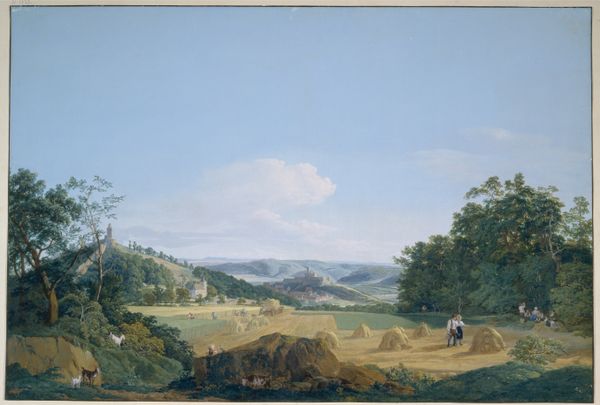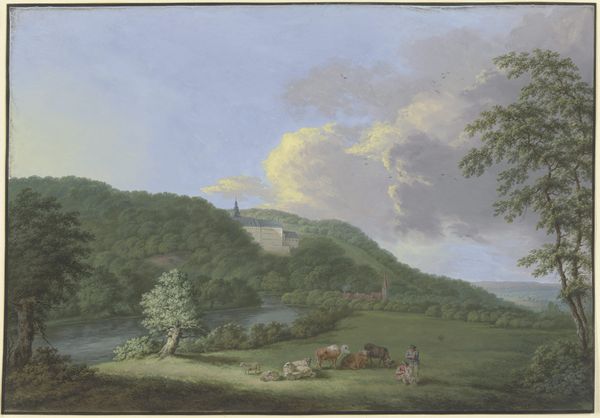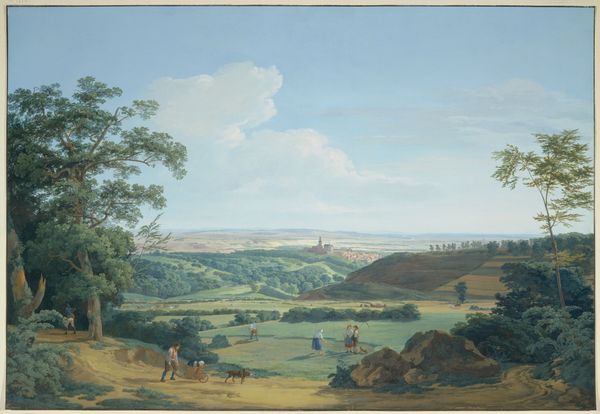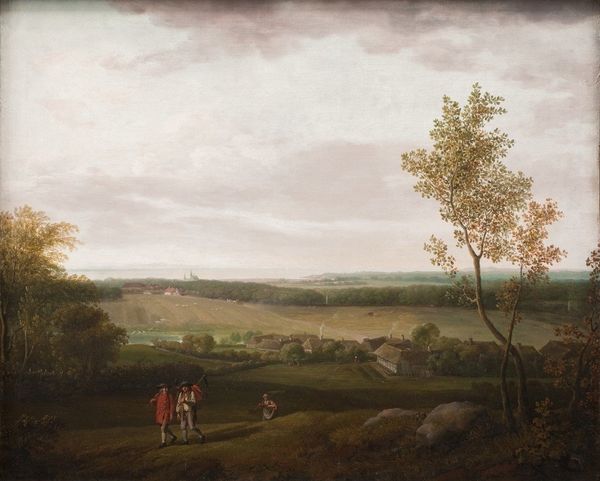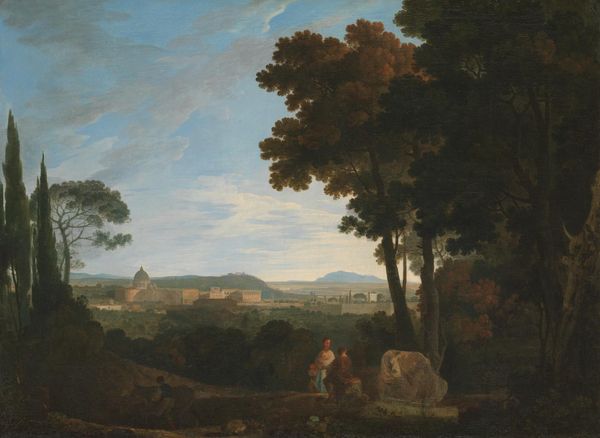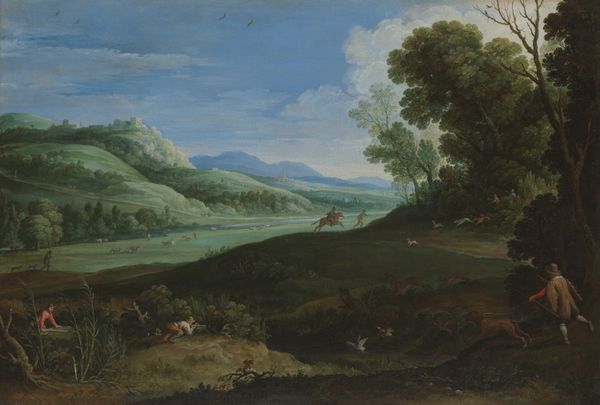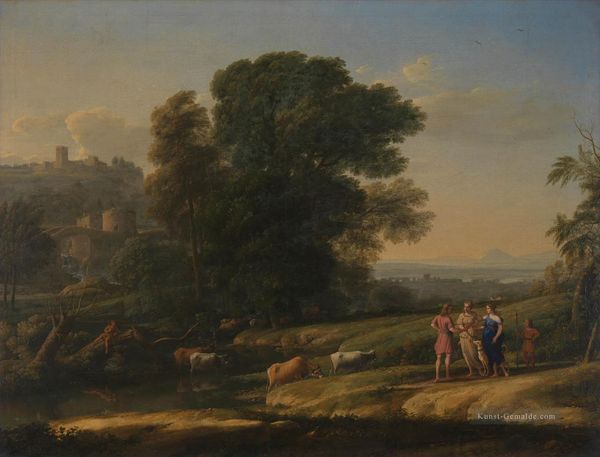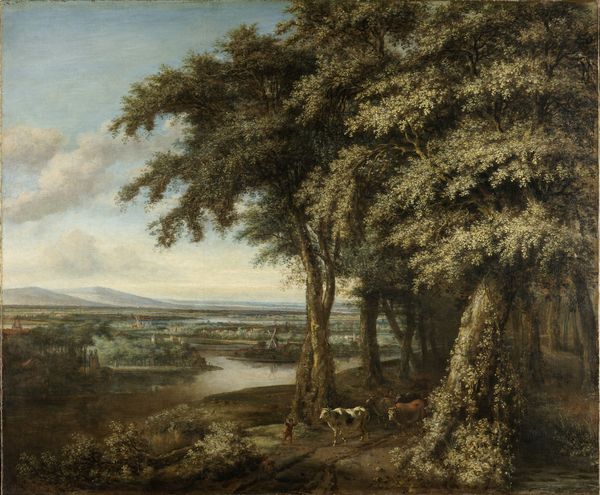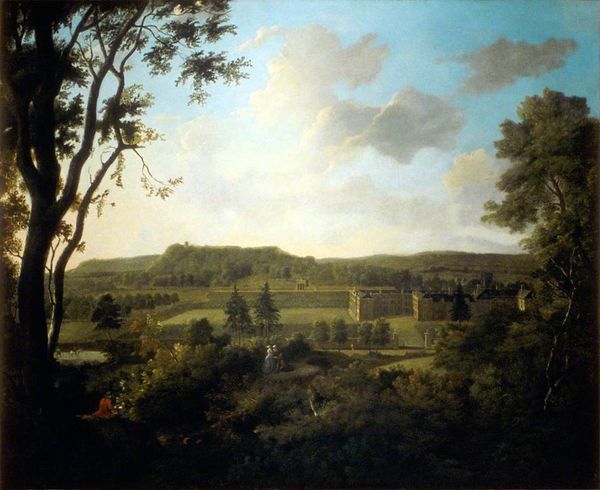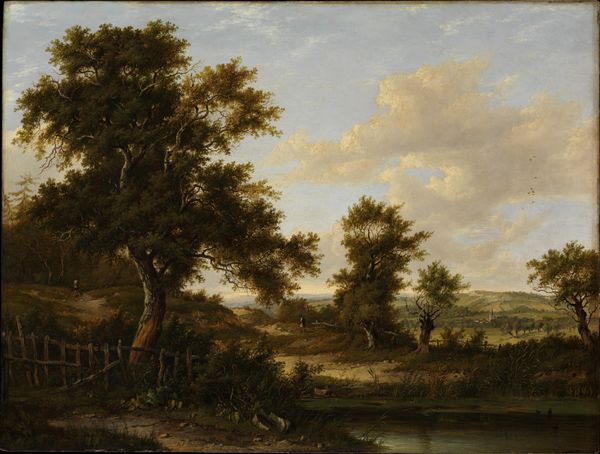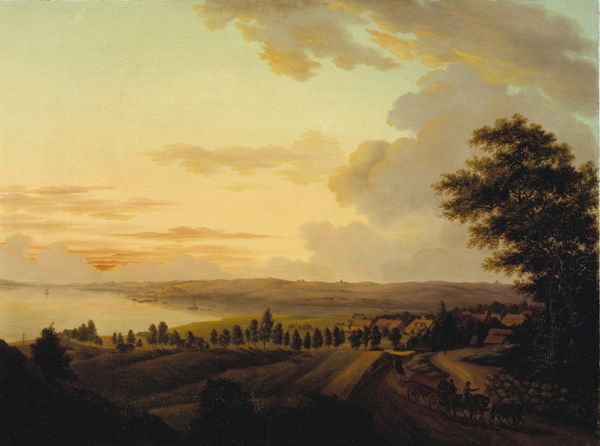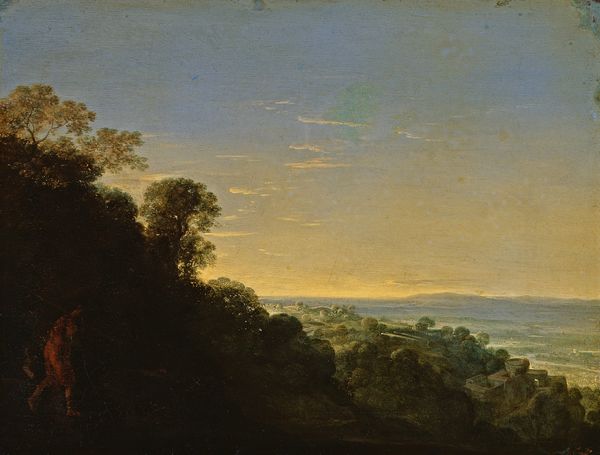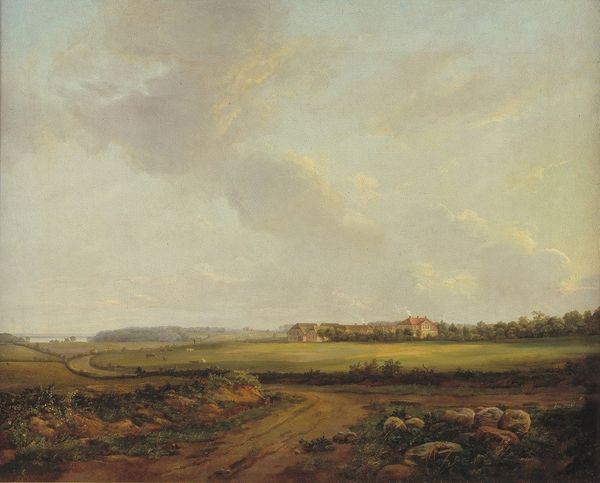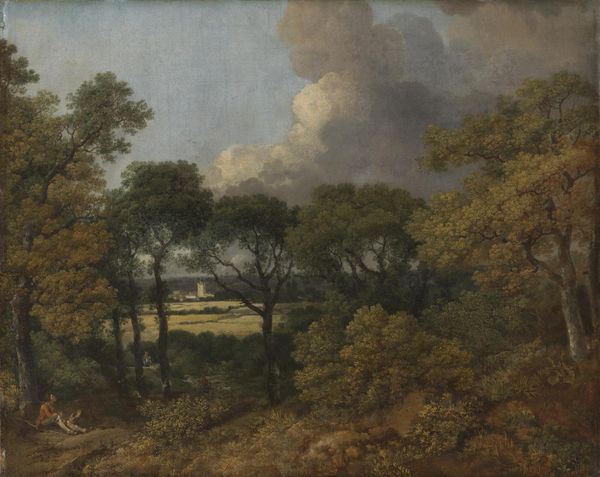
Dimensions: support: 800 x 1257 mm frame: 940 x 1396 x 67 mm
Copyright: CC-BY-NC-ND 4.0 DEED, Photo: Tate
Curator: This is "Haldon Hall, near Exeter" by Francis Towne. Editor: It feels so serene. The rolling hills, the wispy clouds—it's almost dreamlike. Curator: Towne painted this landscape, emphasizing classical composition, during a period of intense enclosure movements. The Hall visually dominates the scene, signifying power. Editor: The strategic placement of the Hall does establish hierarchy, with nature serving as a backdrop for societal structure. But the cattle resting peacefully and the figures conversing imply a social ecosystem in balance with nature. Curator: Perhaps, but consider also the potential for exclusion in such a curated vista. Who benefits from this idyllic scene? Whose labor built and maintains Haldon Hall? Editor: I see your point, but I'm also drawn to the symbolic value of the trees framing the scene, evoking protection and growth. Even the clouds carry a message of change. Curator: Ultimately, Towne's landscape holds space for these very tensions, showcasing the complexities inherent in land ownership and societal ideals. Editor: It's a reminder that even seemingly simple landscapes are rich with complex histories.
Comments
tatebritain 10 months ago
⋮
http://www.tate.org.uk/art/artworks/towne-haldon-hall-near-exeter-t01155
Join the conversation
Join millions of artists and users on Artera today and experience the ultimate creative platform.
tatebritain 10 months ago
⋮
At the heart of this picture is Haldon Hall in Devon, bathed in summer sunlight. Sir Robert Palk had bought the estate in 1769 and the painting shows his redesign of the house and landscape. This was funded by the large fortune he had made working for the East India Company, including as governor of Madras (now Chennai) from 1763–67, before returning to England. This painting signals his power as a landowner and his wealth. Indeed, Towne’s deliberate choice of an elevated vantage point gives the impression of surveying the landscape. Gallery label, April 2023
